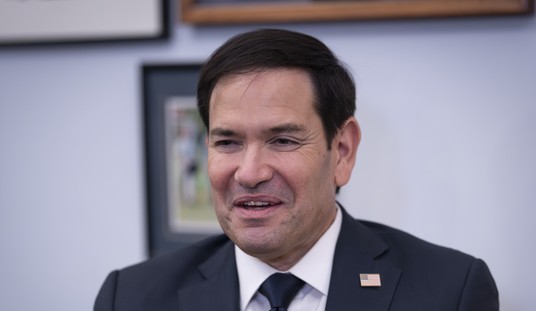One of the joys of the GOP passing their tax plan and President Trump signing it into law has been watching the meltdown of officials in high-tax states. The tax plan caps state and local tax deductions at $10,000. Before that it was unlimited. It allowed for states such as New Jersey, New York, and California to tax and then spend like drunken sailors because taxpayers could deduct all of that liability from federal taxes.
That changes, and it has state officials scrambling.
Now, one would think there might be some reasonable discussions about what to do and how to handle the situation, right? But we’re talking about Democrats here, and so everything merits a hair-on-fire response that lacks critical thinking. Sure enough, instead of looking at ways to change state tax systems and control spending, they’re going with crazy schemes instead. From The New York Times:
Governors and legislative leaders in New York, California and other states are considering legal challenges to elements of the law that they say unfairly single out parts of the country. They are looking at ways of raising revenue that aren’t penalized by the new law. And they are considering changing their state tax codes to allow residents to take advantage of other federal tax breaks — in effect, restoring deductions that the tax law scaled back.
One proposal would replace state income taxes, which are no longer fully deductible under the new law, with payroll taxes on employers, which are deductible. Another idea would be to allow residents to replace their state income tax payments with tax-deductible charitable contributions to their state governments.
Can you believe that? First of all is the hilarious lawsuit route. As if people have a right to deduct state and local taxes. But the other idea is just as loony. They want taxes paid to be considered “charitable contributions” so the full amount of state taxes one has to pay, can get deducted.
Here’s the best part. Soak this in for a moment:
But the cap on the state and local tax deduction could pose a serious threat to state budgets, because it makes state taxes more expensive for residents. That could make it harder for states to raise taxes, particularly on wealthy residents, and could increase pressure to cut spending.
So in effect what the GOP did was raise taxes for wealthier taxpayers by capping deductions. The states are now upset because that will make it more difficult for them to raise state taxes on those same wealthy taxpayers.
Despite the apparent solution of reforming state tax laws and getting spending under control, they’re looking at “fixes” that will only cause more problems:
State leaders are looking for longer-term solutions. Some have raised the possibility of shifting away from taxes on individuals toward taxes on corporations, which are still fully deductible under federal law. But that could cause its own problems: Raising taxes on businesses could make it harder for those states to compete for companies and jobs.
Other lawmakers have floated the idea of seeking out new sources of revenue, perhaps by legalizing — and taxing — marijuana.
That said, there are some voices of reason (who are likely shouting into the void):
Joseph Pennacchio, a Republican state senator in New Jersey, said that he opposed limiting the state and local tax deduction but that New Jersey should focus less on gaming the system and more on lowering its tax burden. There are signs that may be happening. Mr. Sweeney, the Senate president, said that because of the new tax law, he had “pressed the pause button” on a plan to impose a new tax on millionaires.
“Maybe people are starting to realize,” Mr. Pennacchio said, “you’ve got to tiptoe when it comes to raising taxes, because it can do more harm than good.”
DING! DING! DING!
Read all of it and have a good laugh on New Year’s Day.















Join the conversation as a VIP Member